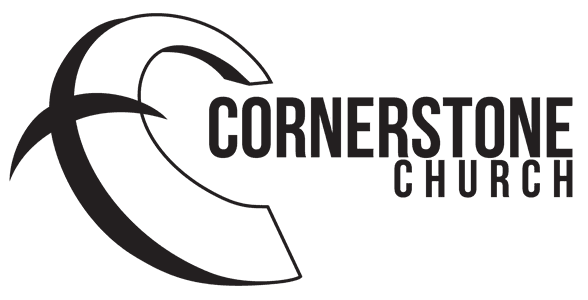Part 3 – The Wealth Effect
By John Reynolds
You may say to yourself, “My power and the strength of my hands have produced this wealth for me.” But remember the Lord your God, for it is he who gives you the ability to produce wealth, and so confirms his covenant. Deuteronomy 8:17-18 (NIV)
In Part 1, we discussed God’s economy and how it provides a channel for us to put the Golden Rule of loving our neighbor (and ourselves) into action. In Part 2, we discussed the concept of investing. Let’s now discuss how investing creates wealth, another important concept in furthering an understanding of God’s economy.
What is wealth? Wealth, at its most basic, is the aggregation of productive resources for the future benefit of owners. Sometimes these productive resources are called “assets” or “capital goods” (or simply “capital”), but essentially, the idea is that the resources can be used to produce future benefits. We frequently speak of these resources in aggregate because they tend to be used together to produce benefits. For example, soil, seed, and water are used together to produce a crop.
How is wealth created? Simply, wealth is created by people, through investing. This, in turn, provides the basis for being able to add value to ourselves and others. Perhaps this is why the book of Deuteronomy, in the Scripture above, indicates that God gave us the ability to produce wealth. God has given us the ability to create (produce) wealth by bringing together and managing the various resources necessary to produce future benefits. We learned in Part 2 how this comes about through the principle of investment. Through purposeful action, we sacrifice resources today with the faith that even better benefits will be produced in the future.
Wealth creation is critical to improving living standards, and, in fact, is the only way to do so. Consider a hunter in a primitive society. Suppose the hunter is able to kill one animal on a typical day by catching an animal with his bare hands. He feeds himself and his family with the animal and it provides enough energy to go hunting the next day. On some days, with a little luck, he is able to catch two animals. The two animals provide options for the hunter: (1) he and the family can eat both animals in one day and be little more satisfied that usual, (2) he can choose to keep one animal until the next day and take that day off, (3) he can keep one animal until the next day and perform some other productive activity. On one of these lucky “two animal” days, he chooses option (3) and, instead of going out to hunt the next day, he decides to make a spear, which will enable him to kill three animals per day. The hunter has invested the extra animal into the creation of a spear. The spear is a basic example of wealth creation, or capital accumulation, that has clearly improved the hunter’s living standard because he can produce more animals with the spear than with his bare hands. The hunter can now eat more, or enlarge his family or sell the extra animals to the farmers.
Ownership
There is one important aspect still missing from the wealth creation formula. If an investor cannot take advantage of the benefits expected in the future, then he or she will have no incentive to make the investment in the first place. Ownership is the right and ability to dispose of a given resource and the income earned from that resource. Ownership is the institution that fosters the creation of wealth through investment by providing to owners the right to the benefits expected.
To understand how the principle of ownership operates, we must understand this critical feature of human nature: I will always care more about what is mine (i.e., what I own) than what is not mine. The Bible makes explicit what we know intuitively. In John 10:11-13, Jesus contrasts a shepherd with a hireling, saying, “I am the good shepherd; the good shepherd lays down his life for the sheep. He who is a hireling and not a shepherd, whose own the sheep are not, sees the wolf coming and leaves the sheep and flees…He flees because he is a hireling and cares nothing for the sheep.” (Emphasis added.) Here we see plainly that the hireling does not care about the sheep because the hireling does not own the sheep. The hireling works for his wages; if danger is encountered in the course of his work, he has little to lose, and flees. In contrast, the shepherd, who is owner of the sheep, has every incentive to protect his sheep because the sheep represent a valuable resource, worthy of protection from the wolf.
In this sense, ownership is closely related to the idea of stewardship. Stewardship is defined (by Oxford Dictionaries) as “the job of supervising or taking care of something.” By rewarding the investor, ownership provides the best incentive for good stewardship. This is not to say that ownership cannot be abused; we need only look to the story of the prodigal son to see that wealth can be easily destroyed by its owner. But, the prodigal ultimately realizes the harm done even to himself as a result.
There is an interesting Scripture that gives Jesus the title “Lord of Lords” (see Revelation 19:16). In this verse, the word Lord literally means owner (a person exercising absolute ownership rights), so this Scripture is really saying that Jesus is the “Owner of owners.” I believe this verse provides us with context for our opening scripture (from Deuteronomy) which describes wealth production as a confirmation of God’s covenant. When we enter into His covenant, we choose to become owned by the Owner, the good Shepherd who lays down His life for us. And, as He exercises ownership over us, we are invited to produce wealth by exercising ownership over His creation (Genesis 1:28). He looks after us and we look after His creation thereby confirming His covenant! This is the true wealth effect!
I hope you’re enjoying the God’s Economy series. Be on the lookout for additional postings.
About the author
John has been in the financial world for 25 years developing expertise in auditing, accounting, financial governance and financial risk management. John is a Certified Public Accountant and a Chartered Financial Analyst charterholder. John, his wife Janell and their four children are members of Cornerstone Church.


